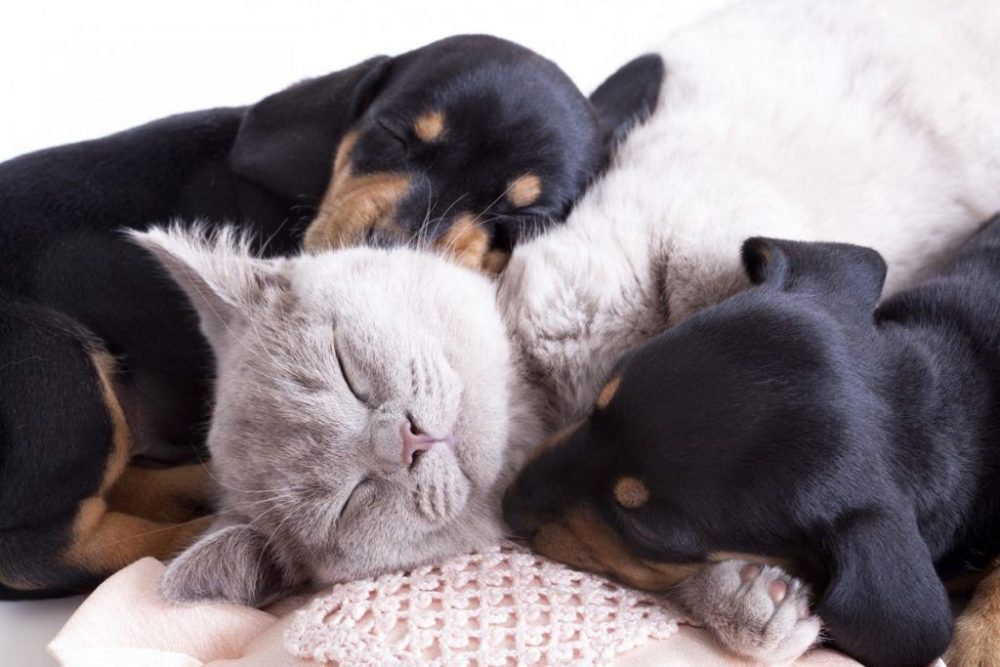

Sleep is an important function for life. Not only does it replenish and refresh, it also is important for cellular repair and cognitive function. Without sleep, the body becomes unhealthy, and cognitive dysfunction becomes apparent to the point that if can affect your daily habits.
So why do animals sleep so much?
There are several theories to exactly why, but we do know most domestic pets (especially cats) will sleep up to 16 hours a day while we humans may only get six to eight hours of sleep.
Sleeping Theories
- One of the theories is that sleeping makes you less apparent to your predator. It is easier to find a dark spot, curl up and make the least possible noise and therefore less of a target for becoming prey.
- Another is energy conservation. If you aren’t doing anything, why waste it being awake. You might need that energy later, so you might as well take a nap instead!
- Other theories include brain plasticity (where the brain reorganizes itself and allows the body to function at optimal levels) and, of course, body restoration.
- A cat or dog or even other smaller mammals have much higher metabolic rates than we do, so they need more sleep to keep their bodies functioning at the correct level. Giraffes sleep approximately 20 minutes per day. High on the predatory list, all they need is a quick nap to keep going all day.
Does your cat or dog really sleep most of the day though? It may need more sleep, and it does depend upon several factors:
-
- If your pet is in the geriatric stage of their life you will notice them sleep more due to a number of factors. Mobility and energy conservation is paramount for them.
- You many notice your arthritic pet sleeping more and that could be due to the inability to simply get up and move around; sleeping is a better alternative than not participating with their surroundings. Arthritis takes up a lot of energy even to get up and move, so you may notice a lot of frequent resting.
- Pets that suffer from heart disease or cancer may sleep more often simply because their body is conserving as much energy as possible to survive.
- Metabolic diseases take a lot of energy and many require more rest for the body to attempt to begin to repair itself.
- Kittens and puppies do a lot of sleeping because they are actively growing. (And yes, pets do dream!)
The average adult pet’s sleep cycle does depend on the household structure as well. If you work from home, your pet might take more frequent but shorter naps in order for them to keep up with your daily routine. Many pets like to participate in what their human companion is doing. If you are not home during the day, your pet may take longer, less frequent naps simply because there is nothing else to do. Boredom can be an active factor on sleep habits as well.
While sleep is important, it is also can indicate something may be awry with your pet. If you notice your pet sleeping more than usual or unusually active during the night when it is normally sleeping – that is a sign you need to make a visit to your veterinarian.
What we do know is everyone enjoys and benefits from a good nap, and those naps are even better when we get to snuggle up with our furry companion.




